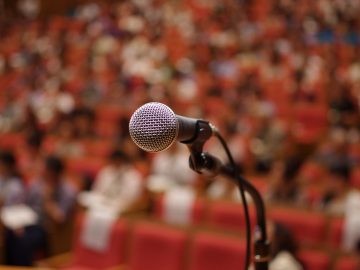
No, not murder or crime scene investigations. We are talking about public speaking. The term forensics can be used in both cases because it has Latin roots that mean using evidence to support something, but AISG’s newest club is more focused on captivating audiences than finding murderers.
To clear up some of the confusion, the club has been renamed Speech and Debate instead. The Speech and Debate club at AISG includes activities such as the following:
–Original oratory, where students design a speech around a topic that they care about;
–Oral interpretation of scripts from films or plays or literature;
–Debate, one of the more popular activities;
–Impromptu speaking, a chance for students to practice speaking without a long period of preparation
–Extemporaneous speaking, where students are given a topic of prominence in local, global, or social issues and given a few minutes to prepare a speech about it.
–Parliamentary debate, a team activity where groups of 2 to 3 are given a topic to debate
Speech and Debate helps students develop speaking and communicating skills that are useful in almost all aspects of life. As technology rapidly expands its role in our lives, even simple and everyday tasks like ordering food can be done through technology. The importance of being able to speak seems to dull, but we all need the ability to speak well. We can’t hide from human contact forever. Even if you can blend into the shadows and not get called on in class, you are going to do a job interview someday, and eventually need to be able to talk to your employer without making a bad impression. Jason H., one of the club’s “unofficial captains,” agrees with this idea: “I think public speaking is still the most important thing, even more important than your reading or writing or anything else. Because the thing you do the most in your life is probably speaking, even if it’s to your friends. If you speak a lot and in front of a lot of people, you’ll gain that confidence and that edge in yourself.” Speech and Debate will guide you there, and of course, although we are often discouraged from thinking like this, “Speech and Debate” doesn’t look too shabby on a college application…
Run by Mr. Seiple, Ms. Barga, and Mr. Beckway, Speech and Debate was supposed to be an APAC event this year. However, an APAC event must have at least 3 practices every week, and many of the students interested in Speech and Debate could not attend all of the 3 meetings due to their involvement in other clubs and teams. Speech and Debate is now a club instead of an APAC event, and they meet on Tuesdays and Wednesdays after school in Ms. Barga’s room (317). Stanley W., who wanted to “compete against other high-quality teams,” is disappointed that Speech and Debate is no longer an APAC event. However, with experience as a senior, he emphasizes that public speaking skills are “super important, not only for leadership but also for your IOCs and FOAs.”
At the meetings, Jason H. believes that the energy and talent of the teachers are motivating: “The teachers really do care about you: they give you very good feedback. For each person, they talk about your deficiencies and skills for more than two or three minutes.” Speech and Debate currently has more than ten freshmen and junior members, many of them joining with different abilities and for different reasons. Freshman Jet C. joined to “improve [her] skill as a speaker and not stutter so much,” and looks forward to mastering the “art of making things up” through more practice with impromptu speaking.
No matter how good you are at public speaking, Speech and Debate has its doors open for you. Drop by Ms. Barga, Mr. Seiple or Mr. Beckway’s room for more details.
One thought on “Forensics, Now Speech & Debate”
Sorry, comments are closed.